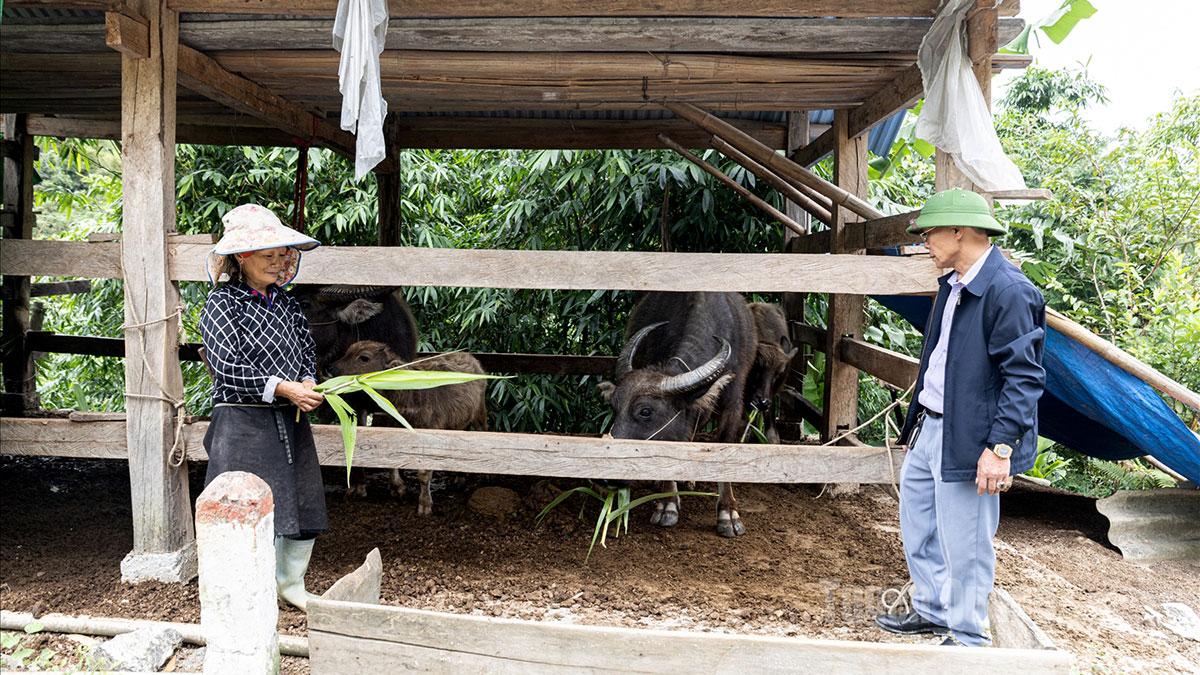Livelihood support program helps Lao Chai people build sustainable futures
As the year draws to a close, a visit to the border commune of Lao Chai reveals a vibrant atmosphere of labor across its hillsides. More uplifting is the visible joy on the faces of ethnic minority households who have found a sustainable development path, no longer relying on short-term assistance. This positive shift stems from Subproject 2, Project 3 of the National Target Program on Socio-Economic Development in Ethnic Minority and Mountainous Areas.
 |
| People of Lao Chai Commune receive support with breeding buffaloes to develop their economy and stabilize their livelihoods. |
For highland households, acquiring valuable assets such as buffaloes or cows is a major challenge, as their livelihoods depend largely on modest upland cultivation. However, production support under the Program has become a powerful catalyst, helping them reshape their economic mindset and build long-term livelihoods.
The family of Tran Van Sang in Nam Tam Hamlet is a clear example. For years, his six-member household survived on small-scale, manual upland farming with no savings. In 2024, the family received financial support to purchase three breeding buffaloes worth VND17 million each. After just over three months of care, all three buffaloes gave birth, providing the family with a renewable source of capital.
Similarly, in Nam Nan Hamlet, Ban Thi Liet has seen significant changes since receiving two breeding buffaloes in 2023. Previously, her family relied entirely on manual labor for farming, which was exhausting and yielded low productivity. With the buffaloes’ pulling power, farmland has been expanded, soil preparation is faster and easier, and rice yields have improved notably.
According to the Lao Chai Commune People's Committee, since 2022, hundreds of households have benefited from production support policies, primarily focused on livestock raising, especially buffaloes and cows, long-standing strengths well-suited to local natural conditions. Beyond distributing livestock, the Program also provides training in advanced husbandry techniques, grass cultivation and disease prevention, helping improve production efficiency in a sustainable way.
Lao Chai Commune Chairman Nong Khanh Toan noted that after the administrative merger of Thanh Duc and Xin Chai communes, the commune’s size and population grew, bringing both opportunities and challenges. Despite persistent poverty, the Program has served as a key driver for socio-economic development.
Alongside livestock raising, local people are also prioritizing key crops suited to the highland climate, such as tea and cardamom. According to Toan, improved infrastructure and coordinated production support have enabled households to stabilize their livelihoods, accumulate savings and reinvest in farming, marking a significant shift and laying the foundation for sustainable poverty reduction in Lao Chai.
Ly Thu





READER COMMENTS